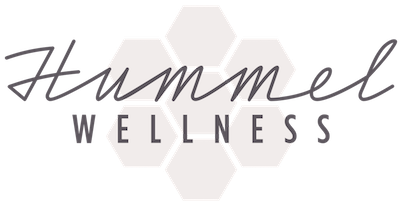
The Unison Benevolent Fund understands that the outbreak of COVID-19 presents extraordinary financial challenges for music makers and music professionals in Canada. This is a very difficult time for everyone, especially for those whom are dealing with cancelled performances and festivals to the shuttering and slowdown of storefronts and shops with no apparent end in sight.
This #SelfcareSunday, we sat down with Sam Arraj, a CPA CA at Seeds Chartered Professional Accountants and Manrke Business Management for tips on how to navigate personal finances during this difficult time.
WHAT ADVICE WOULD YOU GIVE TO MUSICIANS RIGHT NOW?
These are unprecedented times. The focus should be on weathering the storm, both emotionally and financially.
The overall demand for live music and hospitality should return, but it is unclear what it will look like, and when.
What we are seeing during this time is that content is king. The artists, musicians, and support services that are best weathering the storm are the ones focused on creating content and/or supporting content creators.
Take the time to write, produce and create music. Also, try and tackle some of the housekeeping tasks that are harder to deal with when you’re busy and on the road.
WHAT ADVICE WOULD YOU GIVE TO MUSIC BUSINESSES RIGHT NOW?
The number one concern during this time is to ensure that you have cash and liquidity to survive. You should take time to review your business model. Unfortunately, some business models will not work after the COVID crisis is over. Some tough decisions will have to be made whether to cut your losses or to change the business model.
WHAT ARE THE CURRENTLY AVAILABLE RESOURCES TO BOTH MUSICIANS AND BUSINESSES?
The common tools that are available right now for Individuals who have run into financial hardship due to COVID are:
- Employment Insurance (EI) – available for employees and for self-employed individuals, but there are specific criteria that you must meet. Visit Service Canada for more details. https://www.canada.ca/en/employment-social-development/corporate/portfolio/service-canada.html
- Canada Emergency Response Benefit (CERB) – for people who do not qualify under the EI program. It is an emergency benefit to support people who are out of work due to COVD-19.
- Canada Emergency Student Benefit (CESB) – provides financial support to post-secondary students, and recent post-secondary and high school graduates who are unable to find work due to COVID-19.
- Mortgage payment deferral – You can work with your bank to defer mortgage payments due to economic hardship caused by COVID19.
- Social Assistance – If you have ran out of EI and CERB options, this is available as well.
If you are struggling with consumer and CRA debt, this might be a good time to consider restructuring your debt through a consumer proposal or bankruptcy. If you have too much bad consumer debt, it might take you years to recover and clear it out. Clearing up the debt now could help you save years of hardship.
For businesses, the following tools are available:
- Canada Emergency Wage Subsidy – you may be eligible for 75% subsidy for employee wages. More details at https://www.canada.ca/en/revenue-agency/services/subsidy/emergency-wage-subsidy.html
- Canada Emergency Commercial Rent Assistance – provides relief for small businesses experiencing financial hardship due to COVID-19. Property owners must offer a minimum of a 75% rent reduction for the months of April, May, and June 2020 for impacted businesses. More details at https://www.cmhc-schl.gc.ca/en/finance-and-investing/covid19-cecra-small-business
- Canada Emergency Business Account – provides interest-free loans of up to $40,000 to small businesses and not-for-profits. Repaying the balance of the loan on or before December 31, 2022 will result in loan forgiveness of 25%(up to $10,000). See: https://ceba-cuec.ca/
- Borrowing from the Business Development Bank of Canada – you can apply for $100,000 easily online. If you have business financials and good credit history, they are able to approve the loan. You will need to personally guarantee the loan. For anything above a $100,000 loan, you will need to go through a more detailed application.
- Grant programs – Contact the provincial and federal funding bodies to review the grant programs available.
- Business loan deferral – if you have a business loan with a bank, you could call them and defer the monthly payments for 6 months.
WHAT ARE THE MOST COMMON MISCONCEPTIONS OF GOVERNMENT SUPPORT DURING COVID SELF-ISOLATION?
To access any of the government emergency support programs, you must support how you or your business have been impacted by COVID. If you were either not working or you were struggling before the pandemic hit, then you do not qualify for these programs.
ANY INSIGHT INTO HOW ARTISTS CAN NAVIGATE LOSS OF INCOME FROM SHOW CANCELLATIONS?
It depends on the artist. We are seeing some artists do online shows with a pay link. Other artists are continuing to find opportunities through leveraging their profile as paid influencers. Also, some digital paying performance opportunities are popping up. There is money out there: you just need to talk to your team and do the work to access these opportunities.
ANY INSIGHT FOR SMALL MUSIC BUSINESSES TRYING TO STAY AFLOAT?
Slash costs, take advantage of the programs available, review the business model and determine a strategy that will ensure survival. Try to become content creators and find ways to do business digitally.
WHAT SHOULD THE MUSIC INDUSTRY PLAN FOR?
It appears that the live music industry will not be “back to normal” until after a vaccine is available. The demand will return for live music performance, but the industry will shrink, and it is not likely the same opportunities will exist again anytime.
Even with social distancing, remember that we are in this together. If you are feeling anxious about your finances, know that you’re not alone. Talking with others about your money situation can help.
_________________________________________________________________________________

Sam Arraj is a CPA, CA who truly cares about clients and works his hardest to ensure their needs are met. If you have a complicated issue or a simple request, his responsiveness will help you feel at ease.
His industry experience is with owner-managed businesses from all sectors, including strong experience working with many not-for-profit organizations, charities, and trade associations.
The former President of the Country Music Association of Ontario and an on-going music fan believes in giving back to the community, which is why he has served on the CMAO board since 2011.



